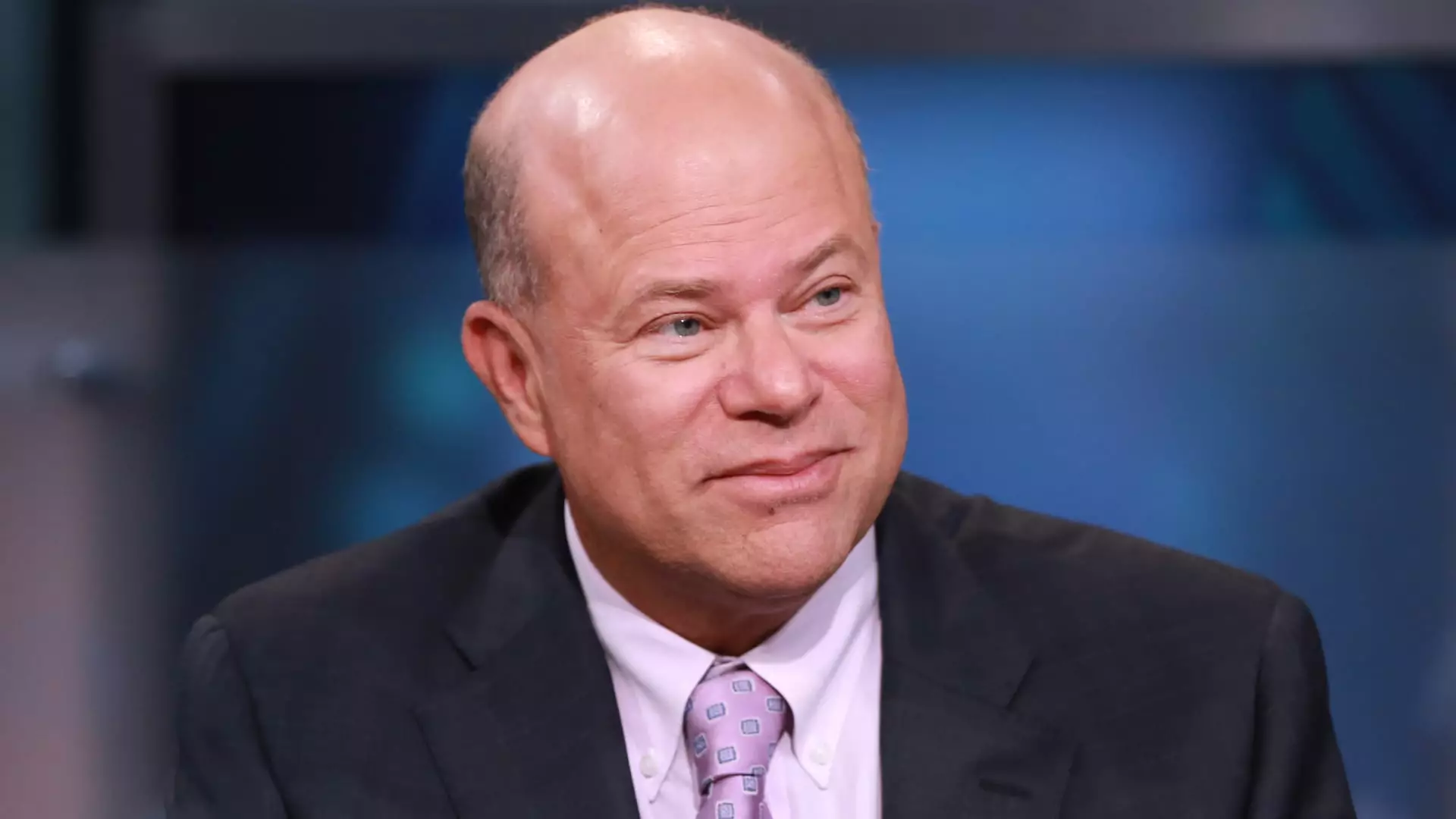In recent commentary, David Tepper, the prominent hedge fund manager and owner of the NFL’s Carolina Panthers, emphasized the critical nature of investor confidence in the Federal Reserve’s actions. As he articulated on CNBC’s “Squawk Box,” the credibility of the Federal Reserve hinges on its commitment to follow through with its communicated intentions. Tepper’s perspective underscores the importance of understanding not only what the Fed states but also the broader implications of its actions on the financial markets.
Tepper pointed out that the measures taken by the Fed reflect a determined recalibration of economic policy. By signaling a consensus among its members regarding interest rate adjustments, the Fed aims to retain its authority and influence in the market. Such convictions are vital, as inconsistencies between stated intentions and actual moves can lead to a loss of trust, which has profound implications for both investors and the economy.
The recent decision by the Federal Reserve to cut benchmark interest rates by half a percentage point marks a significant shift in monetary policy, the first such easing in four years. Despite exhibiting stable economic indicators, this decisive move raises questions about the underlying health of the economy. Tepper highlighted that the current macroeconomic environment is reminiscent of the late 1990s, where the Fed also reduced rates despite a solid economy, leading to what many describe as a “bubble” period.
Tepper’s analogy serves as a stark reminder of the potential pitfalls associated with aggressive monetary easing. While the Fed’s actions aim to foster growth, investors must remain vigilant about the subsequent impact on asset valuations. The dichotomy between a solid economy and dovish monetary policy creates a complex landscape, one that requires investors to tread carefully.
Tepper projected additional rate cuts could be necessary for the Fed to uphold its credibility. He specified a scenario where two or three more quarter-point cuts seem likely. While such actions might stimulate immediate benefits for the stock market, the long-term implications could be more troublesome. The Fed’s commitment to lowering rates has historically stimulated short-term gains in equities, yet it begs the question of sustainability, particularly when most inflationary metrics remain elevated.
Despite growing concerns regarding the labor market and the implications of a sluggish economy, Tepper expressed reluctance to bet against U.S. equities. His reasoning reflects a recognition of the immediate benefits associated with easy monetary policy, despite his reservations about the valuation levels in the stock market. This conundrum reveals the complexity of investment strategies in an era characterized by aggressive central bank interventions.
Tepper’s investment perspective extends beyond U.S. markets, as he revealed a strategic pivot toward Asia and Europe, reflecting the evolving landscape of global economic recovery. Drawing insights from the latest governmental support measures in China, Tepper believes that emerging market equities hold more promise compared to their U.S. counterparts.
His focus on foreign markets indicates a broader shift in investment thinking, which may stem from the analysis of potential growth trajectories and fiscal policies issued by global governments. Asian markets, in particular, present a unique opportunity given their responsiveness to monetary stimuli, making them attractive in the current climate of uncertainty.
Tepper’s insights serve as a vital reminder of the importance of understanding the intricacies of monetary policy and the broader market landscape. The Federal Reserve’s drive to maintain credibility through decisive rate cuts shapes investor sentiment, necessitating a careful evaluation of asset classes beyond traditional benchmarks.
As global economic conditions continue to shift, investors are encouraged to remain aware of the multiple factors influencing market dynamics. Tepper’s focus on international equities reveals an astute adaptation to an ever-evolving financial ecosystem, highlighting the importance of diversifying strategies amidst shifting economic paradigms. Navigating this complex environment will require both caution and adaptability, as investors brace for what lies ahead in a world increasingly influenced by central bank actions.

